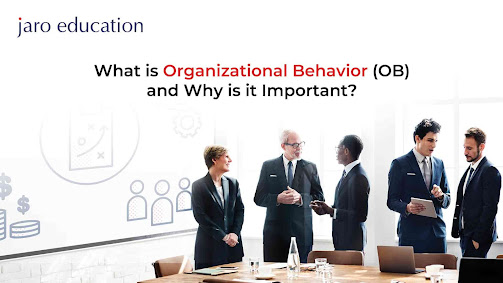How is AI used in Human Resource Management?
Introduction
The
integration of Artificial Intelligence (AI) into Human Resource Management
(HRM) marks a transformative shift in the way organizations manage their
workforce. AI's ability to process vast amounts of data and automate routine
tasks is revolutionizing traditional HR practices. From recruitment and
on boarding to performance management and employee engagement, AI is enabling HR
departments to work more efficiently and effectively. This integration not only
improves operational processes but also enhances the overall employee
experience, making AI an invaluable tool in modern HR management.
Artificial
Intelligence in Recruitment and Hiring
The recruitment and hiring process is undergoing a significant transformation thanks to Artificial Intelligence (AI). AI-powered tools are streamlining tasks, improving efficiency, and enhancing decision-making in HR departments. Here are some key ways AI is being utilized in recruitment and hiring.
|
Applicant Tracking Systems (ATS): AI-driven ATS
can automate the screening of resumes, track candidates, and manage job
postings. This reduces the time-to-hire and ensures that no potential
candidate is overlooked.
|
Candidate Sourcing: AI algorithms
can analyze vast amounts of data to identify top talent, even passive
candidates who may not be actively seeking new opportunities. This helps
recruiters find the best fit for the job more efficiently.
|
|
Chatbots and Virtual Assistants: AI chatbots
can handle initial candidate inquiries, schedule interviews, and provide
information about the company and the role. This improves the candidate
experience by providing quick and accurate responses.
|
Predictive
Analytics: AI can analyze historical data to
predict which candidates are most likely to succeed in a role.This helps
recruiters make more informed hiring decisions and reduces the risk of a bad
hire.
|
Artificial Intelligence in HR Performance Management
Artificial Intelligence
(AI) is revolutionizing performance management in human resources by automating
routine tasks, providing data-driven insights, and enhancing employee
experiences. Here are some key ways AI is being used in HR performance
management.
|
Real-Time Performance Tracking: AI systems can
monitor employee performance in real-time, providing managers with up-to-date
data and insights. This helps identify areas for improvement and recognize
top performers promptly. |
Predictive Analytics: AI can analyze
historical performance data to predict future trends, helping managers
anticipate which employees might need additional support or training. This proactive
approach can improve overall performance and reduce turnover. |
|
Personalized Feedback: AI can
generate personalized feedback for employees based on their performance data.
This ensures that feedback is relevant and actionable, helping employees grow
and develop. |
Goal
Setting and Monitoring: AI can assist in setting clear,
achievable goals for employees and tracking their progress. This helps keep
employees focused and motivated, aligning their efforts with organizational
objectives. |
Artificial Intelligence
(AI) is revolutionizing training and development in human resources by creating
personalized learning experiences, optimizing training processes, and promoting
continuous improvement. Here are some key ways AI is being used in this area.
|
Personalized Learning Experiences: AI can analyze
an employee's learning style, pace, and preferences to create customized
training programs. This ensures that each employee receives the most relevant
and effective training, enhancing their skills and productivity. |
Identifying Skill Gaps: AI can assess
employees' current skills and compare them to the required skills for their
roles. This helps identify knowledge gaps and provides targeted training to
address these areas. |
|
Real-Time Feedback: AI-powered
tools can provide instant feedback to employees during training sessions,
helping them understand their progress and areas for improvement. This
continuous feedback loop enhances learning and development. |
Interactive
Training Modules: AI can deliver interactive training
programs that include simulations, quizzes, and personalized feedback. These
modules make learning more engaging and effective. |
The integration of
Artificial Intelligence in Human Resource Management is revolutionizing the way
organizations operate. By automating routine tasks, providing data-driven
insights, and personalizing employee experiences, AI enhances efficiency and
effectiveness within HR departments. From recruitment and on-boarding to
performance management and training, AI is reshaping HR practices to be more
agile, informed, and employee-centric. This not only improves organizational
productivity and employee satisfaction but also helps in creating a more
innovative and forward-thinking workplace. Embracing AI in HRM is not just an
option but a strategic imperative for companies aiming to stay competitive in
the modern business landscape.
References
A guide to integrating AI for better hiring outcomes https://www.thehansindia.com/hans/young-hans/a-guide-to-integrating-ai-for-better-hiring-outcomes-913521
Enhancing
Human Resource Management with Artificial Intelligence: Opportunities,
Challenges, and Best Practices https://link.springer.com/chapter/10.1007/978-3-031-54671-6_31



.webp)
Very good article towards the understanding of near future. Valuable insights are provided for new generation technics.
ReplyDeleteThanks Amila
ReplyDeleteGood post on the benefits of AI in employee training and development! Your insights on personalized learning experiences, skill gap identification, and real-time feedback are well-articulated. The emphasis on interactive training modules showcases how AI can make learning more engaging and effective. Well-researched and highly relevant. Excellent work!
ReplyDeleteThis introduction concisely captures AI’s impact on HRM, highlighting its transformative role in optimizing recruitment, onboarding, and employee engagement. AI-driven efficiency and enhanced employee experience are clearly emphasized.
ReplyDeleteThanks Hasitha
DeleteFascinating look at AI's role in HR! Your insights reveal how AI can streamline recruitment, enhance decision-making, and personalize employee experiences, transforming HR management for the better."
ReplyDeleteThe post well discusses on how AI is reshaping HRM by streamlining processes, enhancing decision-making, and improving employee experiences. AI-powered tools can automate repetitive tasks like resume screening, allowing HR professionals to focus on more strategic roles.
ReplyDeleteI read your post, and I feel that technology has truly revolutionized HR. With tools like ATS and AI, recruitment is now more efficient, helping companies find talent faster. Digital onboarding and self-service platforms empower employees with easy access to resources. However, balancing these advantages with data security and addressing biases is essential to maintain fairness.
ReplyDelete